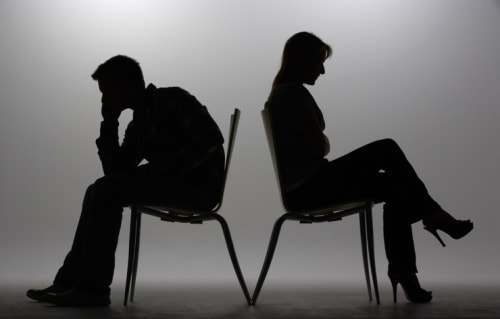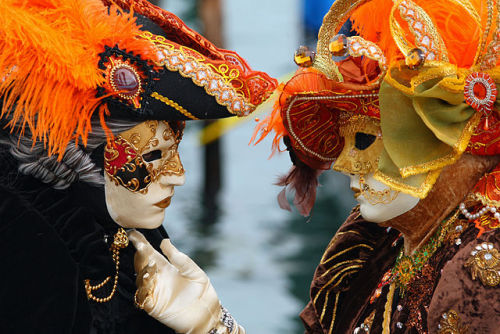 If you have spent any amount of time on the internet’s author corners recently, you caught wind of the “describe yourself like a male author would” challenge and the #misandryinpublishing tag that came in angry response to the trend. You know that the Male Gaze has been on the social radar lately. Specifically, the kind of “male gaze” that appears when authors find need to describe their female characters not so much as women, but as objects to be lusted after. It’s not a new subject; the male gaze has been panned pretty widely for a long time, and for much more famous books. Several big fantasy authors have been called out on using less-than-realistic descriptions from a female perspective. The now older “Witches of Eastwick” by John Updike recently came under heat on Twitter for a somewhat lecherous and confusing description of bathroom habits. Given Updike’s prowess in the literary world, it seems few authors are above this keen eye of criticism. But with criticism comes outrage; some male writers feel attacked by the recent Twitter challenge, stating that they have the right to write and create as they well please. The #misandryinpublishing hashtag quietly turned to an upheaval over why men are “censored” or not allowed to describe women “in the eyes of a worshiper.” Ignoring the eye-rolling concept that women need be worshiped for beauty to be good characters, it is worth examining why the “male gaze” does or does not work. Are men truly being put upon if this is constantly called out and publicly shamed? For the answer, it’s first important for us to examine the “male gaze” in fiction as a trope, and where it stands in terms of quality writing. TVTropes defines Male Gaze as, “the tendency of works to assume a male viewpoint even when they do not have a specific narrative Point of View, and in particular the tendency of works to present female characters as subjects of a man’s visual appreciation.” It also mentions that Not All Tropes Are Bad, and that this particular perspective can work well under the actual perspective of a male character. No one assumes that Male Gaze isn’t- well, inherent to most men. The problem itself isn’t in a man’s perspective, but when the male author gets in the way. Depending on the kind of third person you write, the narrator rarely expresses a personal opinion on characters’ appearances. And first person is always written from the perspective of a character, meaning that a male character could theoretically fall to Male Gaze about a woman, but a female character wouldn’t use Male Gaze to talk about herself. That’s not even a problem of sexism or misogyny, that’s a that’s poorly written perspective, much in the way that Damsel in Distress or Action Girl are poor tropes if they are simply played straight. Tropes are not the root of all evil, but they are useless in a poor writer’s hands. “Writing attractive women doesn’t make me a poor writer!” you may argue, to which I agree. But writing women under the perspective that their only characteristics are their attractiveness is nothing less than thoughtless. In TVTropes’ terms, it may even fall under Author Appeal, which isn’t inherently wrong. There was a time when Robert E. Howard and Updike could get away with these things, but these days… it probably won’t win you an audience that reads you for your acclaimed wordsmithing. “That’s not fair,” you might say. “I’m not trying to write something voyeuristic about women- that’s just how my writing works! Why would my work just get tossed aside as cheap?” Welcome then, my friend, to the company of female romance authors and YA authors, also discounted for the “female gaze” and woman-centric tropes for a long, long time. Now the playing field is even. Yes, writing about the opposite sex can be difficult and comes with a lot of hurdles; everyone can attest to that, whether or not the character they’re writing is an object of their attraction. Humanizing any character can be very difficult, simply because deep characterization takes more time than a second and third draft. Many of my own main characters are men, a fact that not only took research, but interviews, quiet studies, and above all, empathy, to create. I say “empathy,” because there are things that come with a male perspective that I will probably never understand fully, but I can try to understand why and try to portray those elements of male perspective in a non-biased way. Much the same way, there are elements of the female perspective that male authors will never quite understand; that still doesn’t mean we earn licence to give up and portray our characters as objects to decorate the main character’s life. What makes us, men and women both, dynamic and interesting ought to transcend clichés and fanservice shots, and what makes women interesting (and by proxy, your story) extends far beyond the Male Gaze and the author’s proclivities.
0 Comments
The discussion of pen names recently came up on my Gothic Literature course this semester, notable because in the earliest days of gothic fiction, many authors resigned their stories to the ownership of “Anonymous,” as to add to the mystery of the text’s publication or discovery. What better way to write untold horrors than through the eyes of the unknown narrator? Horace Walpole didn’t disclose his authorship of Castle of Otranto until after it had become such a massive success, and many shorter, less famous works have never been credited to a proper author. My class chuckled about this at times, particularly in stories like “Ruins of The Abbey of Fitz-Martin,” where the unknown narrator, upon reading an old text’s contents, conveniently finds that parts of the story are “too decayed” to be deciphered and so skips scenes. A mighty fine way to avoid fixing a plot point when readers and critics don’t even know who penned the tale to begin with.
|
About MeCaitlin Jones is an author, film editor, and lover of all things Victorian and fantastic. Please check in for information on her upcoming series. Archives
August 2020
|

 RSS Feed
RSS Feed
